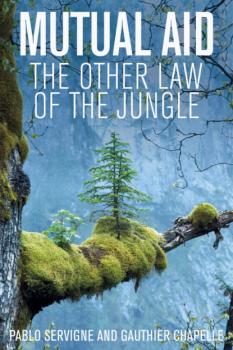Биология
Различные книги в жанре БиологияНаука подтверждает – 8. Сборник статей
Все люди – родственники! Научно доказано, что человек – мутированная обезьяна (Homo sapiens) и самый ближайший к нам родственник по расшифрованному геному – горилла. Всё остальное (креационизм, «избранность» неких народов) не более чем самообман. Человек, так же как и другие существа, появился не в результате «божественных сил», а лишь путем мутаций, генетических изменений. Главная мутация произошла примерно 2,4 миллиона лет назад в гене, который контролирует развитие челюстных мышц.
Раковина Авиллы
Интересная сказочная история о мальчике, волею случая попавшего в подводный мир и прилагающего титанические усилия для возвращений в обычную сухопутную жизнь. Читатель встретится со многими очень интересными персонажами из подводного мира, с захватывающим остросюжетным сценарием их личных взаимодействий, взаимодействий с береговым миром и взаимодействий с юными представителями суши, оказавшимися в необычной для себя, водной среде.
Мои подходы к изучению циклической динамики и частотного распределения продукции сперматогенеза быков крупного рогатого скота
В работе предложено использовать спектрально-временной анализ (СВАН) для изучения цикличной динамики и частотного распределения продукции сперматогенеза быков, что является научной новизной. Работа написана с целью заинтересовать данной проблемой собственников крупного рогатого скота, сотрудников Департамента животноводства и племенного дела Минсельхоза РФ и научных сотрудников. 22 июля 2021 года.
Biomolecular Engineering Solutions for Renewable Specialty Chemicals
Discover biomolecular engineering technologies for the production of biofuels, pharmaceuticals, organic and amino acids, vitamins, biopolymers, surfactants, detergents, and enzymes In Biomolecular Engineering Solutions for Renewable Specialty Chemicals , distinguished researchers and editors Drs. R. Navanietha Krishnaraj and Rajesh K. Sani deliver a collection of insightful resources on advanced technologies in the synthesis and purification of value-added compounds. Readers will discover new technologies that assist in the commercialization of the production of value-added products. The editors also include resources that offer strategies for overcoming current limitations in biochemical synthesis, including purification. The articles within cover topics like the rewiring of anaerobic microbial processes for methane and hythane production, the extremophilic bioprocessing of wastes to biofuels, reverse methanogenesis of methane to biopolymers and value-added products, and more. The book presents advanced concepts and biomolecular engineering technologies for the production of high-value, low-volume products, like therapeutic molecules, and describes methods for improving microbes and enzymes using protein engineering, metabolic engineering, and systems biology approaches for converting wastes. Readers will also discover: A thorough introduction to engineered microorganisms for the production of biocommodities and microbial production of vanillin from ferulic acid Explorations of antibiotic trends in microbial therapy, including current approaches and future prospects, as well as fermentation strategies in the food and beverage industry Practical discussions of bioactive oligosaccharides, including their production, characterization, and applications In-depth treatments of biopolymers, including a retrospective analysis in the facets of biomedical engineering Perfect for researchers and practicing professionals in the areas of environmental and industrial biotechnology, biomedicine, and the biological sciences, Biomolecular Engineering Solutions for Renewable Specialty Chemicals is also an invaluable resource for students taking courses involving biorefineries, biovalorization, industrial biotechnology, and environmental biotechnology.
Mutual Aid
In the merciless arena of life, we are all subject to the law of the jungle, to ruthless competition and the survival of the fittest – such is the myth that has given rise to a society that has become toxic for our planet and for our and future generations. But today the lines are shifting. A growing number of new movements and thinkers are challenging this skewed view of the world and reviving words such as ‘altruism’, ‘cooperation’, ‘kindness’ and ‘solidarity’. A close look at the wide spectrum of living beings reveals that, at all times and in all places, animals, plants, microorganisms and human beings have practised different forms of mutual aid. And those which survive difficult conditions best are not necessarily the strongest, but those which help each other the most. Pablo Servigne and Gauthier Chapelle explore a vast, forgotten continent of mutual aid in order to discover the mechanisms of this ‘other law of the jungle’. In so doing, they provide a more rounded view of the world of living things and give us some of the conceptual tools we need to move beyond the vicious circle of competition and self-destruction that is leading our civilization to the verge of collapse.









